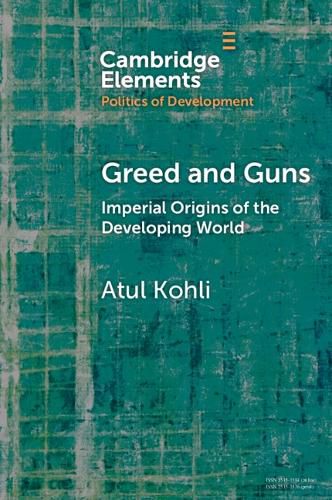Readings Newsletter
Become a Readings Member to make your shopping experience even easier.
Sign in or sign up for free!
You’re not far away from qualifying for FREE standard shipping within Australia
You’ve qualified for FREE standard shipping within Australia
The cart is loading…






This Element studies the causes and the consequences of modern imperialism. The focus is on British and US imperialism in the nineteenth and the twentieth centuries respectively. The dynamics of both formal and informal empires are analyzed. The argument is that imperialism is moved mainly by the desire of major powers to enhance their national economic prosperity. They do so by undermining sovereignty in peripheral countries and establishing open economic access. The impact on the countries of the periphery tends to be negative. In a world of states, then, national sovereignty is an economic asset. Since imperialism seeks to limit the exercise of sovereign power by subject people, there tends to be an inverse relationship between imperialism and development: the less control a state has over its own affairs, the less likely it is that the people of that state will experience economic progress.
$9.00 standard shipping within Australia
FREE standard shipping within Australia for orders over $100.00
Express & International shipping calculated at checkout
This Element studies the causes and the consequences of modern imperialism. The focus is on British and US imperialism in the nineteenth and the twentieth centuries respectively. The dynamics of both formal and informal empires are analyzed. The argument is that imperialism is moved mainly by the desire of major powers to enhance their national economic prosperity. They do so by undermining sovereignty in peripheral countries and establishing open economic access. The impact on the countries of the periphery tends to be negative. In a world of states, then, national sovereignty is an economic asset. Since imperialism seeks to limit the exercise of sovereign power by subject people, there tends to be an inverse relationship between imperialism and development: the less control a state has over its own affairs, the less likely it is that the people of that state will experience economic progress.